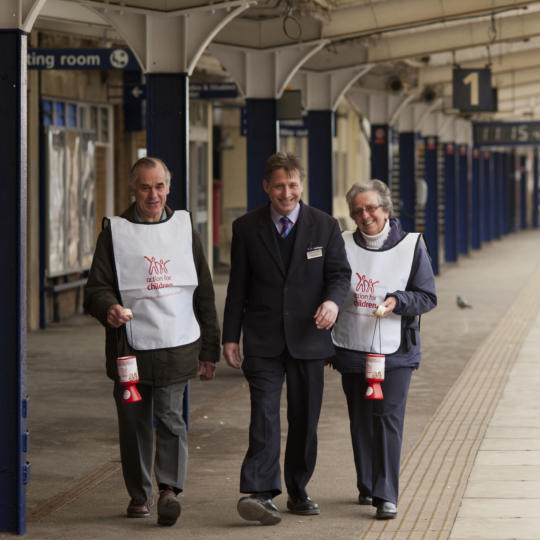Charity fundraisers working at rail stations across the UK will face new regulatory measures following a partnership between seven rail and station operators, the Charity Commission and the Fundraising Standards Board.
Nearly 1,500 stations will be covered by the new agreement which is aimed at minimising the potential for fraudulent collections at stations and improving public confidence in giving.
In order to fundraise at stations managed by the seven operators, which include London Underground, London Overground and South West Trains, charities will have to indicate whether they are a member of the FRSB and whether they file their annual charity return on time with the Commission.
Alistair McLean, chief executive of the FRSB, said being a member of the FRSB was now a requirement for charities that want to collect at any underground station and other rail stations nationwide, including just under 1,000 of those covered by the new partnership. It is not a requirement for all stations covered by the new partnership.
He said: "We see this as a vital step forward in promoting public trust and confidence."
Several other new measures apply to all stations.
Charities must ensure collectors are informed of their duty to meet best practice standards for cash collections as set out in the Institute of Fundraising’s Code of Fundraising Practice.
And charities must complete a standardised application process, which aims to provide rail operators with greater clarity about which checks they need to make when giving permission to charities that wish to collect at their stations.
Sarah Atkinson, head of information and communications at the Commission said: “This initiative takes a significant step in helping protect train passengers from fraudulent collectors and increasing public trust and confidence in charities."
The other train operators involved with the new partnership are Abellio Greater Anglia, FirstGroup, Network Rail and Northern Rail.
Charities warned about fraudster fundraisers
The British Transport Police's superintendent Paul Brogan said charities need to be vigilant about fundraising applications from potential fraudsters.
"Charity fraud does exist on the transport network and there is a real concern that genuine charities may be at risk of being defrauded, which is why we encourage charities to be alert. The relatively small cost of a CRB check would help deter the long-term risk of reputational damage to charities by minimising fraud and championing safer giving," he said.









